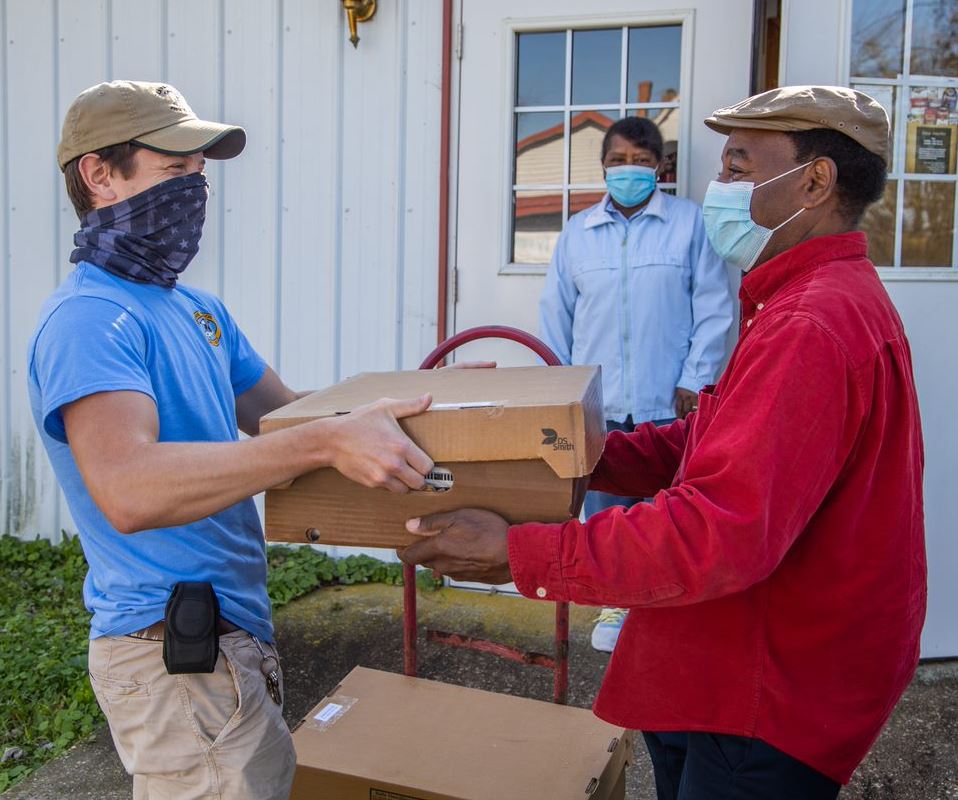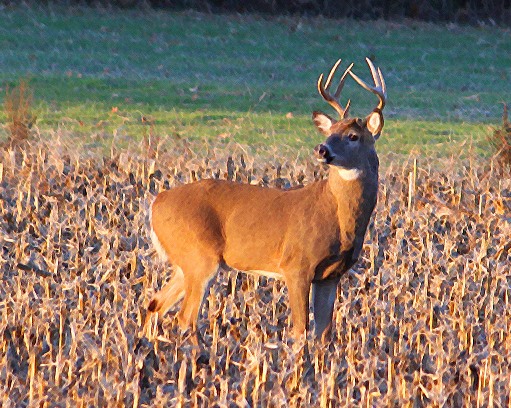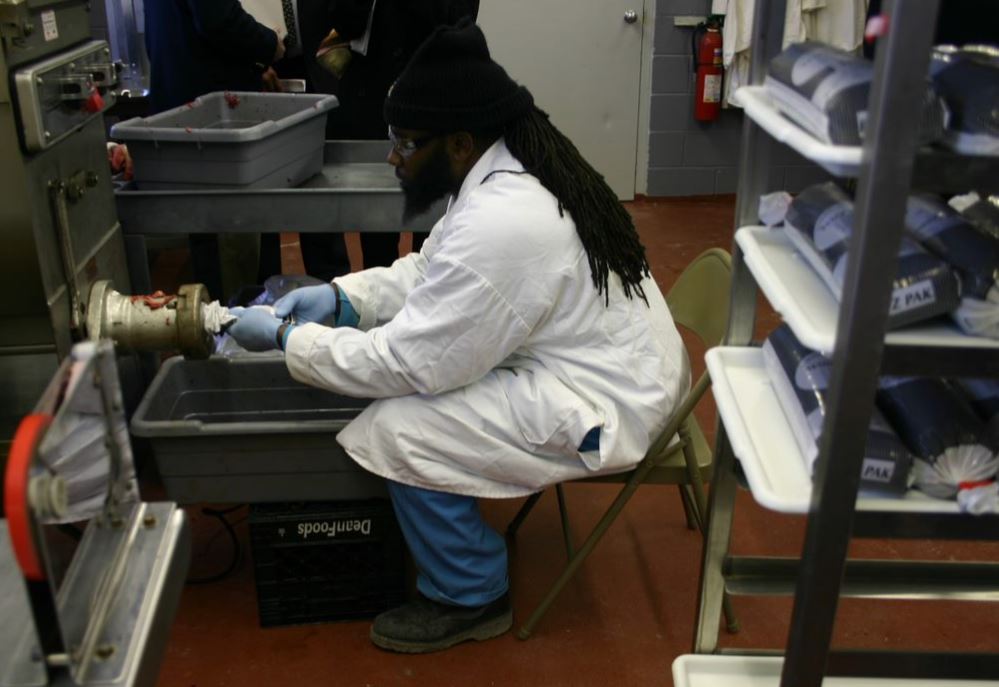By Eric Ness

Our Sportsmen Against Hunger program is a great representation of what the holiday season is all about. There are few things better for an avid hunter than a successful day in the field. But add the satisfaction that comes from providing for families across the state, creating opportunities for others to have a second chance, and supporting local charities, then you have an even better recipe. This is the reality for many Delaware hunters who participate in our Sportsmen Against Hunger program (SAH).
SAH, run by the Delaware Department of Natural Resources and Environmental Control, has given hunters a means to donate their excess deer meat to those in need since 1996.
How it Works
During the season, hunters who donate their surplus deer meat field dress, register and tag it before bringing it to one of several locations for processing.
 Hunters can drop off their extra take to walk-in coolers and participating butcher shops located in each county. The venison is then processed, ground and packaged by butchers as well as the offenders involved in the Sussex Community Corrections Center butchery program. It is then picked up by our staff for distribution to food banks.
Hunters can drop off their extra take to walk-in coolers and participating butcher shops located in each county. The venison is then processed, ground and packaged by butchers as well as the offenders involved in the Sussex Community Corrections Center butchery program. It is then picked up by our staff for distribution to food banks.
The Impact
Countless families have benefited from the SAH program. There are currently 45 organizations on the distribution list to receive donations and the venison is dispersed equally throughout the state.
Hunters have made either meat or financial contributions that have made a huge difference. To date, SAH has distributed nearly 529,000 pounds of venison over the past 24 years to local food banks providing 2.1 million meals to those in need.
Meeting More Needs Than One
More than 2,500 pounds of venison is processed annually at Sussex Community Corrections Center (SCC). This equates to over 10,000 meals provided annually from the venison processed from SCC. About 30 offenders participate in the program each year learning valuable skills.
 After a 40-hour training program, each offender receives a basic butchery certificate. This certification covers numerous equipment safety and operation techniques, as well as sanitation and packaging processes used in the meat-packaging industry. In addition, the offenders earn community service credits towards court costs and fines.
After a 40-hour training program, each offender receives a basic butchery certificate. This certification covers numerous equipment safety and operation techniques, as well as sanitation and packaging processes used in the meat-packaging industry. In addition, the offenders earn community service credits towards court costs and fines.
SCC and DNREC participants say many offenders have expressed the sense of accomplishment they feel as they, or someone close to them, have received meals from food banks and know the difference these services can make in people’s lives.
The SAH program also helps with management of the state’s deer population by providing a service for addressing excess harvest.
The 2020 Outlook
At the close of the 2018-2019 hunting season, the program crossed the cumulative half-million-pound threshold for donated venison and distributing 25,400 pounds in 2019. With all the changes in our state due to COVID-19 safety measures, it was difficult to predict how the program would perform this year.

But the 2020 season is off to a great start with around 1,000 pounds donated so far, consistent with previous years. With the vast majority of venison donated November through January, the 2020 outlook is promising.
Despite the pandemic, the hunting seasons have been largely unaffected this year. DNREC provides a new online permitting process. Participating hunters are asked to follow all safety guidelines and recommendations from the state as well as butcher shops when making donations. Since the drop-off coolers are located outdoors and are not staffed, there has been no need to modify this process.
With Thanks
Sportsmen Against Hunger provides a list of all drop-off locations and procedures, and ways to contribute financially to support the program. Charities interested in receiving donated venison can call 302-284-4795.
As we enter a season of thanksgiving, we are reminded that without the hunter donations, butcher and SCC participation, and food bank operations, the SAH program would not be possible. We are incredibly grateful to all those involved in the work that goes into making SAH a success.
Eric Ness is a deer biologist and environmental scientist with the DNREC Division of Fish and Wildlife.





 Hunters can drop off their extra take to walk-in coolers and participating butcher shops located in each county. The venison is then processed, ground and packaged by butchers as well as the offenders involved in the Sussex Community Corrections Center butchery program. It is then picked up by our staff for distribution to food banks.
Hunters can drop off their extra take to walk-in coolers and participating butcher shops located in each county. The venison is then processed, ground and packaged by butchers as well as the offenders involved in the Sussex Community Corrections Center butchery program. It is then picked up by our staff for distribution to food banks. After a 40-hour training program, each offender receives a basic butchery certificate. This certification covers numerous equipment safety and operation techniques, as well as sanitation and packaging processes used in the meat-packaging industry. In addition, the offenders earn community service credits towards court costs and fines.
After a 40-hour training program, each offender receives a basic butchery certificate. This certification covers numerous equipment safety and operation techniques, as well as sanitation and packaging processes used in the meat-packaging industry. In addition, the offenders earn community service credits towards court costs and fines.


